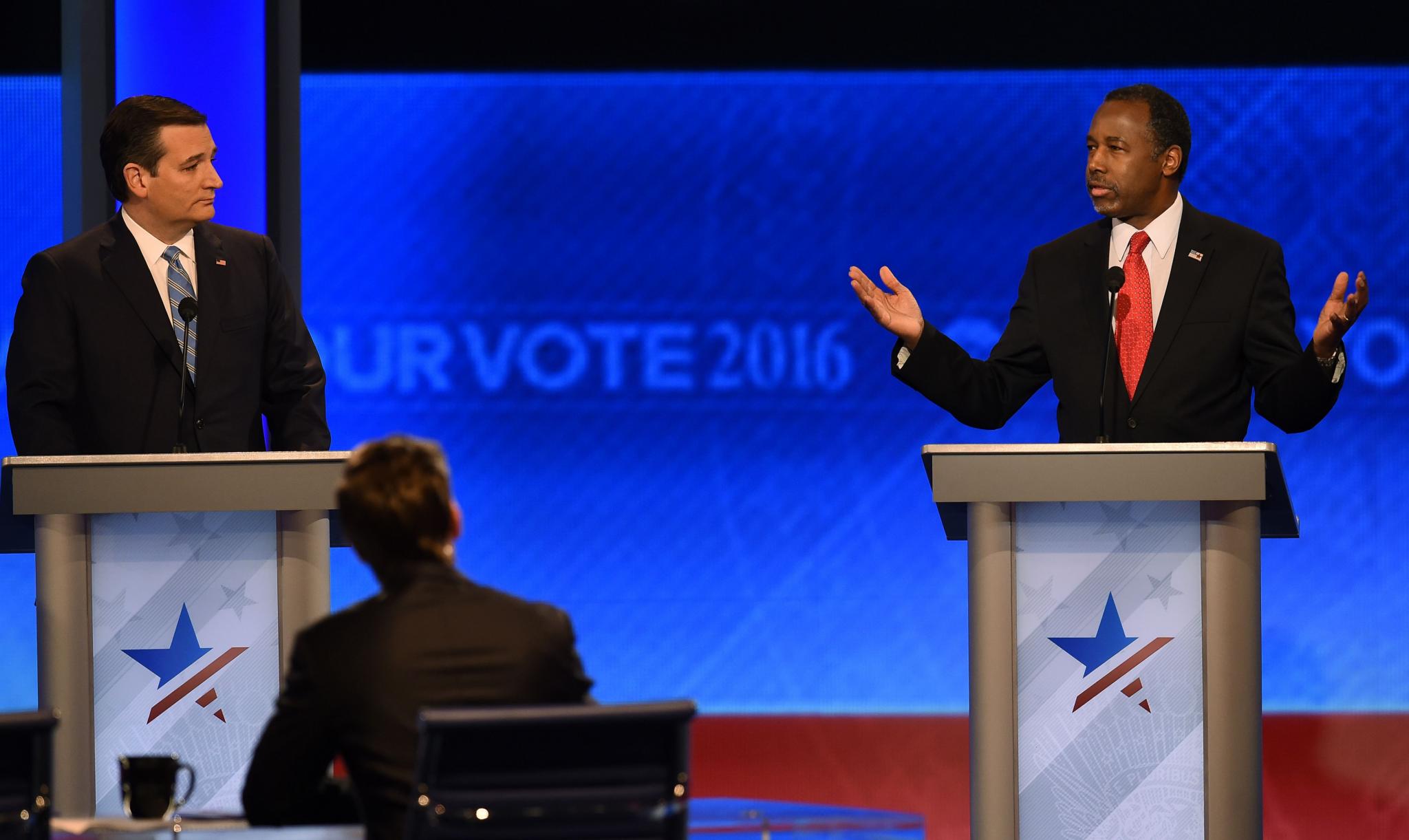
There was no kiddie table, temper tantrums or boycotts, but instead there was a colorless debate panel politely pitting the Republican candidates against each other. Most notably, we saw Chris Christie taking the bait and Marco Rubio losing his edge.
Do or die time. The Republican candidates had a lot to prove just three days before a contest that sets the field for the most viable players going forward. A CNN/WMUR tracking poll going into Saturdays night’s faceoff reshuffled the deck—keeping Donald Trump with a wide lead at 29 percent—and, for the first time, putting Marco Rubio in a strong second position at 18 percent.
It’s a narrow but diverse field that’s expected to winnow after Tuesday’s New Hampshire primary. That’s why a combative Christie had to take Rubio head on and it paid off. Christie was the first and only one to address the Florida senator directly by name and gaze. During one exchange Christie vocally tallied (and interjected) each time Rubio pivoted to his typical “this notion that Barack Obama doesn’t know what he is doing is just not true” speech. It set off several rounds of applause. “You have not been involved in a consequential decision where you had to be held accountable. You just simply haven’t. That’s not leadership, that’s truancy,” Christie quipped.
GOP Candidates Bask in Donald Trump’s Absence in Final Debate Before Iowa Caucuses
There is a lot of promise for Rubio, who picked up a slew of key endorsements last week, most notably from Senator Tim Scott and Governor Bobby Jindal. He’s among my top three picks in the race overall, and did get in a few points, but struggled to mount any significant snapback against Christie’s relentless jabs. “Marco, the thing is this. When you’re president of the United States, when you’re a governor of a state, the memorized 30-second speech where you talk about how great America is at the end of it doesn’t solve one problem for one person. They expect you to plow the snow. They expect you to get the schools open. And when the worst natural disaster in your state’s history hits you, they expect you to rebuild their state, which is what I’ve done,” Christie said.
Ben Carson also scored points by checking Ted Cruz on a question about the “dirty tricks” and tactics to undermine his campaign when Cruz staffers erroneously told Iowa caucus goers Carson had dropped out just before they cast ballots. “I’m not going to use this opportunity to savage the reputation of Senator Cruz, but I will say that I was very disappointed that members of his team thought so little of me,” Carson said. “I mean who would do something like that?” But Carson, like Cruz (who said, “I apologized to him then now and I apologize again now”), didn’t seem to gain much traction overall. Others stood out by making strong arguments for why governors make better leaders and senators represent more what most hate about Washington.
Oh, so polite and vanilla. ABC News moderators George Stephanopoulos, Martha Raddatz and David Muir remained professional, asking substantive questions on topics that ranged from immigration and deportation; ISIS; preemptive strikes against North Korea; the temperament to lead; experience and leadership; tax hikes; healthcare and eminent domain.
Tuesday Night’s Debate Winners, Losers and Why You Should Care
It wasn’t until almost two hours in that there was just one question – directed at Donald Trump – about excessive force against minorities and how to strike a balance between police enforcement and community harmony. Trump fell flat. “Police are absolutely mistreated and misunderstood,” he said. Then added, “everybody sues” as he bumbled through an answer.
Still, there are Republican candidates, like Ohio governor John Kasich, who do have impressive relationships with Black constituents and have narrowed racial disparity gaps in education, economics, and healthcare through policy. Kasich cut in, saying “Love the police, but we have to be responsive to people in the community.”
Keep an eye on the endgame. Admittedly, minority voters in general aren’t a significant population in New Hampshire, but they do represent a larger swath of the general electorate ideologically. Forty-percent of New Hampshire voters overall identify as “Independent,” and according to New England College professor of political science, Wayne Lesperance, they’re more “fiscally conservative and moderately liberal.” Sound familiar? Unlike Iowa, “there is no real evangelical movement here,” Lesperance says. Which is why Republican candidates played up their fiscal and social policy positions. More importantly, while Trump may lead – and business is certainly his biggest attribute—Rubio, Christie and Bush are the kind of candidates the Party needs in order to gain new voters and win not just the nomination, but the general election.